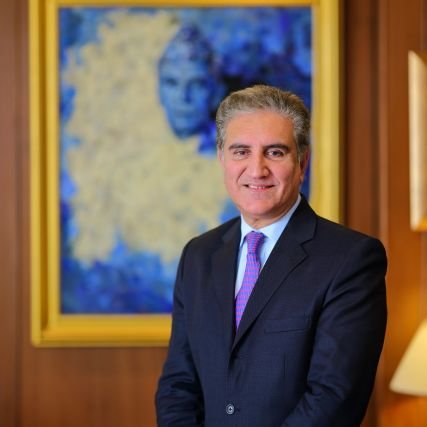In a dramatic turn of events, Pakistan’s political landscape has been shaken as opposition leader Shah Mehmood Qureshi, a former foreign minister and close aide to imprisoned former Prime Minister Imran Khan, was arrested on Saturday in connection with the ‘cypher’ case. The arrest came just hours after Qureshi’s press conference, where he vowed to challenge any delay to the upcoming general elections and demanded a “level playing field” for his Pakistan Tehreek-e-Insaf (PTI) party. This move has ignited further controversy amidst ongoing political turmoil in the country.
Detention Sparks Controversy Over Election Fairness:
Qureshi’s arrest has ignited a heated debate over the fairness of the upcoming general elections. The PTI, led by Qureshi since Khan’s recent arrest, has been under intense scrutiny following the crackdown on its members, including top leadership, allegedly orchestrated by Pakistan’s powerful military. Critics argue that Qureshi’s arrest is an attempt to stifle opposition and manipulate the electoral process. PTI’s spokesperson condemned the arrest on social media, asserting that Qureshi was being targeted for reaffirming the party’s stance against pre-poll rigging and tyranny in the nation’s politics.
Revelations of US Involvement in Ouster Raise Questions:
The ‘cypher’ case takes a more intriguing turn with revelations surrounding a secret diplomatic cable published by The Intercept. The cable indicated that the United States had purportedly sought to remove former Prime Minister Imran Khan from power last April. Khan, who had previously alleged US involvement in a conspiracy against his government, subsequently lost a no-confidence vote and resigned. While the content of the cable remained undisclosed, Khan’s allegations against the US were retracted. The arrest of Qureshi, accused of misusing the diplomatic cable for political gains, deepens the mystery surrounding the incident and raises questions about the dynamics of global political manipulation.
Election Uncertainty Looms Amid Constitutional and Economic Challenges:
As the nation faces a myriad of challenges, including constitutional and economic crises, the uncertainty surrounding the upcoming general elections persists. The outgoing government’s approval of a new census has triggered the need for redrawing electoral boundaries, a process that may take several months in a country with a population of over 241 million. The Election Commission’s announcement that new constituencies will be finalized by December 14 has cast doubts on the election date. Additionally, the political scene is further complicated by the empowered role of Anwaar-ul-Haq Kakar, the recently sworn-in prime minister, who possesses unprecedented authority to make policy decisions on economic matters.
In the midst of these intricate developments, Shah Mehmood Qureshi’s arrest reverberates as a significant event with far-reaching implications. While the dust settles on the ‘cypher’ case, Pakistan finds itself at a critical juncture, grappling with questions of democracy, fairness, and the delicate balance between political power and state interests. As the nation eagerly awaits the resolution of these uncertainties, the political landscape remains turbulent, with its impact likely to reverberate beyond national borders.















